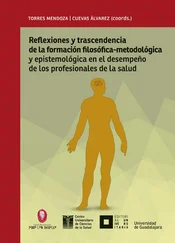Akua’s hands started to tremble in the pot, making a low rattling noise and marring the shape of the fufu. So it was worse than what they had all been fearing, worse than another war, worse than a few hundred more dead. They were a warrior people, and war was what they knew. But if a white man took the Golden Stool, the spirit of the Asante would surely die, and that they could not bear.
Nana Serwah reached out and touched her hand. It was one of the few gestures of kindness Asamoah’s mother had shown her since the days of Asamoah and her courtship, then marriage. They both knew what was coming and what it meant.
By the next week there had already been a meeting among the Asante leaders in Kumasi. The stories that followed told of the men of the meeting being too timid, disagreeing about what to say to the British, what to do. It was Yaa Asantewaa, Edweso’s own Queen Mother, who stood up and demanded that they fight, saying that if the men would not do it, the women would.
Most of the men were gone by morning. Asamoah kissed his daughters, and then he kissed her too, held her for just a moment. Akua watched him as he dressed. She watched as he left. Twenty other townsmen went with him. A few men stayed, sat in the compound waiting to be fed.
Nana Serwah’s husband, Akua’s father-in-law, had kept a machete with a golden handle beside him every night of his life, and after he died Nana Serwah had kept it in the place where he used to sleep. A machete in exchange for a body. After the Queen Mother’s call to arms reached Edweso, she had pulled that machete out from the bed and taken it with her into the compound. And all the men who had not already gone to fight for the Asante took one look at the old woman holding the large weapon and left. And so began the war.
—
The Missionary kept a long, thin switch on his desk.
“You will no longer go to class with the other children,” he told her. Only a few days had passed since a child had called the Missionary obroni, but Akua hardly remembered that. She had just learned to write her English name, Deborah, that very morning. It was the longest name of any of the children in the class, and Akua had worked very hard to write it. “From now on,” the Missionary said, “you will take lessons from me. Do you understand?”
“Yes,” she answered. Word must have gotten to him that she had mastered her name. She was getting special treatment.
“Sit down,” the Missionary said.
She sat.
The Missionary took the switch from his desk and pointed it at her. The tip of it was just inches from her nose. When she crossed her eyes she could see it clearly, and it wasn’t until then that the fear hit her.
“You are a sinner and a heathen,” he said. Akua nodded. The teachers had told them this before. “Your mother had no husband when she came here to me, pregnant, begging for help. I helped her because that is what God would have wanted me to do. But she was a sinner and a heathen, like you.”
Again Akua nodded. The fear was starting to settle somewhere in her stomach, making her feel nauseated.
“All people on the black continent must give up their heathenism and turn to God. Be thankful that the British are here to show you how to live a good and moral life.”
This time, Akua did not nod. She looked at the Missionary, but she didn’t know how to describe the look he returned to her. After he told her to stand up and bend over, after he lashed her five times and commanded her to repent her sins and repeat “God bless the queen,” after she was permitted to leave, after she finally threw the fear up, the only word that popped into her head was “hungry.” The Missionary looked hungry, like if he could, he would devour her.
—
Every day Akua woke her daughters up while the sun was still sleeping. She wrapped her wrapper, and then walked with her girls out into the dirt roads where Nana Serwah, Akos, Mambee, and all of the other women of Edweso had already begun to assemble. Akua’s voice was the strongest, and so she led them in song:
Awurade Nyame kum dom
Oboo adee Nyame kum dom
Ennee yerekokum dom afa adee
Oboo adee Nyame kum dom
Soso be hunu, megyede be hunu.
Up and down the streets they sang. Akua’s toddler, Ama Serwah, sang the loudest and most off-key, her words a slew of gibberish until the song reached her favorite part, at which point she screamed more than sang, “CREATOR GOD, DEFEAT THE TROOPS!” Sometimes the women put her in the very front, and her little legs would stomp about valiantly until Akua picked her up to carry her the rest of the way.
After the singing, Akua went back to wash herself and the children, put white clay on her body as a symbol of her support for the war efforts, eat, then sing again. They cooked for the men in shifts so that there was always something to send away. At night, Akua would sleep alone, dreaming of the fire still. Screaming again, now that Asamoah was gone.
—
Akua and Asamoah had been married for five years. He was a tradesman, and he had business in Kumasi. He had seen her one day at the missionary school and had stopped to talk to her. And from then on he stopped to talk to her every single day. Two weeks later he was back to ask if she would marry him and come to live in Edweso, for he knew she was an orphan with no other place to live.
Akua found nothing particularly remarkable about Asamoah. He was not handsome like the man called Akwasi who came to church every Sunday, standing timidly in the back and pretending not to notice as the mothers threw their daughters at him. Asamoah also seemed to possess little mental intelligence, for his whole life had been about the intelligence of the body: what he could catch or build or lift to take with him to market. She had once seen him sell two kente for the price of one because he could not count the money correctly. Asamoah was not the best choice, but he was the sure one, and Akua was happy to accept his proposal. Up until then, she had thought she would have to stay with the Missionary forever, playing his strange game of student/teacher, heathen/savior, but with Asamoah she saw that maybe her life could be something different from what she had always imagined it would be.
“I forbid it,” the Missionary said when she told him.
“You can’t forbid it,” Akua said. Now that she had a plan, a hope for a way out, she felt emboldened.
“You…you are a sinner,” the Missionary whispered, his head in his hands. “You are a heathen,” he said, louder now. “You must ask God to forgive your sins.”
Akua didn’t respond. For nearly ten years, she had filled the Missionary’s hunger. Now she wanted to attend to her own.
“Ask God to forgive your sins!” the Missionary yelled, throwing his switch at her.
The switch hit Akua on the left shoulder. She watched it drop to the floor, and then, calmly, she walked out. Behind her she could hear the Missionary saying, “He’s not a man of God. He’s not a man of God.” But Akua cared nothing for God. She was sixteen, and the fetish priest had died only a year before. She used to go to him whenever she could get away from the Missionary. She used to tell him that the more she learned about God from the Missionary, the more questions she had. Big questions like, if God was so big, so powerful, why did he need the white man to bring him to them? Why could he not tell them himself, make his presence known as he had in the days written about in the Book, with bush fires and dead men walking? Why had her mother run to these missionaries, these white people, out of all people? Why did she have no family? No friends? Whenever she asked the Missionary these questions, he refused to answer her. The fetish man told her that maybe the Christian God was a question, a great and swirling circle of whys. This answer never satisfied Akua, and by the time the fetish man died, God no longer satisfied her either. Asamoah was real. Tangible. His arms were as thick as yams, and his skin as brown. If God was why, then Asamoah was yes and yes again.
Читать дальше

![Ally Carter - [Gallagher Girls 01] I'd Tell You I Love You But Then I'd Have to Kill You](/books/262179/ally-carter-gallagher-girls-01-i-d-tell-you-i-lo-thumb.webp)










